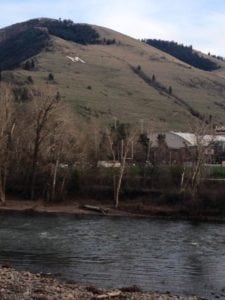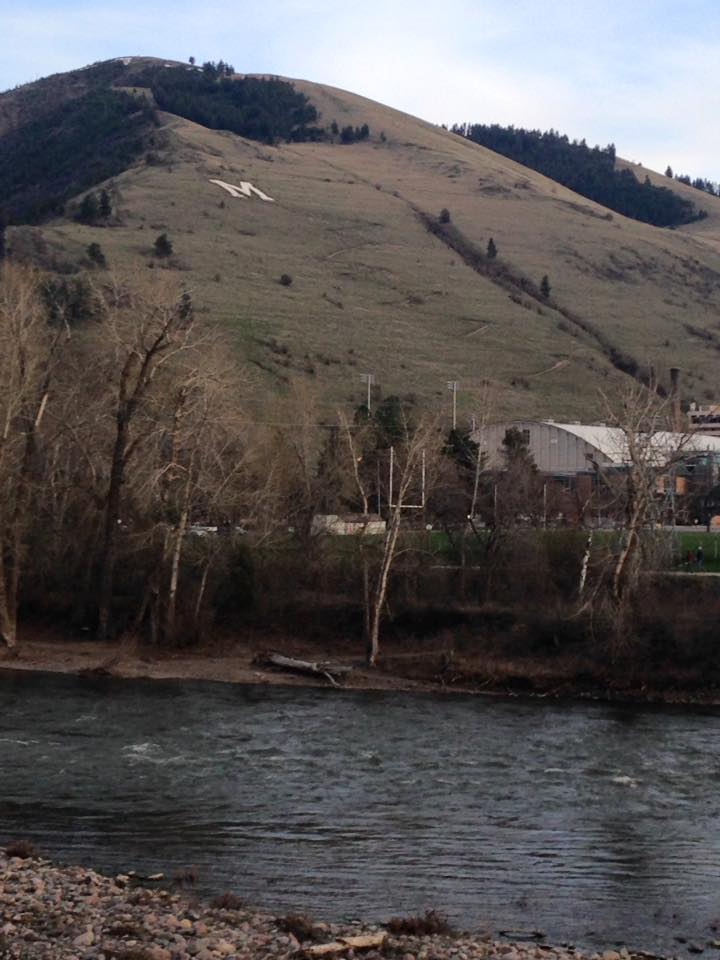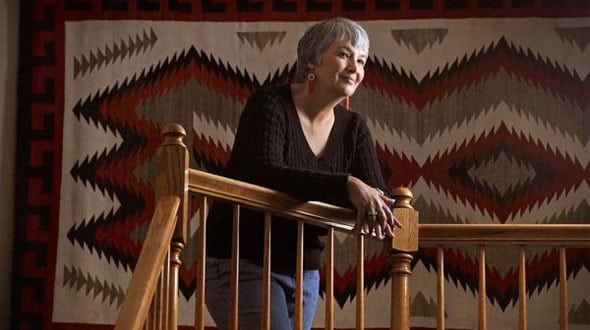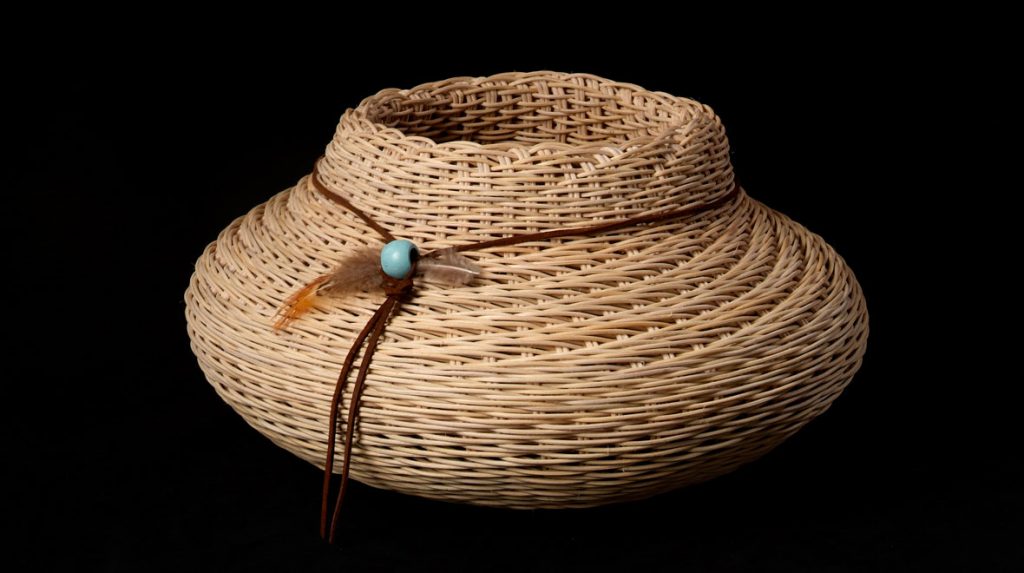 I am sitting in Missoula, Montana, at the Doubletree Inn, a beautiful hotel on the banks of the Clark Fork River. It used to be the Red Lion. I remember driving across the bridge to the east, the wooden one whose iron archways hold it in place, I tell the waitress who looks at it with new eyes. Then I feel old. That was fifty years ago.
I am sitting in Missoula, Montana, at the Doubletree Inn, a beautiful hotel on the banks of the Clark Fork River. It used to be the Red Lion. I remember driving across the bridge to the east, the wooden one whose iron archways hold it in place, I tell the waitress who looks at it with new eyes. Then I feel old. That was fifty years ago.
I have a view of the large, white “M” that sits on Mount Jumbo, the zig-zag trail going up to it is etched deep into the hillside. I’ve climbed it may four times. To the north of the “M” is the forest, where the skeletal trunks of trees still stand like matchsticks against the new, dense growth of trees. In the 1980s we returned home from a vacation to flames and white smoke billowing from the side of Mount Jumbo. We found out later that it had been burned as a prank gotten out of control. A couple of Forest Service guys convinced a man who was somewhat slow, that he’d been put in charge of controlled burn, a fire intentionally set to burn off old grass and weak shrubs so fire doesn’t have as much fuel. Except there was wind, and the fire got out of control. What’s left are the scars that spark my memory.
To be honest, the journey here, the flight from Denver to Missoula, has been a video-clip of memories. I saw our current house below me as we flew over Fort Collins; and the tempestuous landscape of Wyoming, its calm plains, its angry mountains. I saw the first place I remember living, the Centennial Valley with Red Rock Lakes nestled against the northern slopes. And I know when I look beyond, I would see the back side of the Tetons, now hidden by a thick barrier of clouds.
However, when I see Wisdom, Montana below me, the memory becomes vivid, of Rick and I , in the early 1980s, building a huge fire in the middle of October. It was a time of year when the Big Hole ran clear as glass and the meadow grass was gold and the forest across the river was dark green. It was to this forest that Rick made several trips, stepping on the glacial rocks that hobbled along the river bottom, slick with algae, carrying armfuls of deadfall. That night we ate shake-a-meal, canned beans and stew. We didn’t have cooking utensils so we just shook the contents onto paper plates and ate with plastic forks. And we watched the sky go into twilight, its pastels of orange and pink drifted into violet , which became darkness. Overhead the stars shone bright, diamonds on velvet. They grew in number and died out. At least that’s what I imaged. It was only the sparks of the fire that rushed to meet them.
When the pilot announced we’d be landing in twenty minutes I saw that we were dropping over the Sapphire Range that sat east of wildlife refuge where we lived when I went to grade school in Stevensville. Below me, dirt roads wandered in straigh lines with ninty-degree turns as they defined the boundaries of small farms and ranches. I looked for the turn where the school bus went, picking up the Indian kid whose dad owned one of those ranches. He was a high schooler who, one day, protected me from junior high boys, whose barbed words filled with anti-Indian slurs, were cut short with his voice, his stare and his face which remained stone.
I see the road that my brother, Vern and I traveled, one afternoon as we shared pieces of our lives, parts of stories, having met in adulthood. It is the same road I traveled with an uncle, whom I also met in adulthood, who pointed out the land on which the refuge was born, the one my dad set up, had been land where the Salish Indian people would go for gambling games, stick games, games that I have no knowledge of. But I see his face as he reaches out the window, pointing with his hand instead of his fingers, I see his memories cross his face like clouds, like a warm breeze. It is as if he is trying to capture these memories like a net being cast over a school of fish.
There is the old military fort. But what I remember is the road, nearby, where the teenage sons of one of my co-workers killed a man because he was speeding. I wonder how he feels now, what he would say. I wonder if he started drinking, and just never stopped. I wonder if he’s still alive.
This is Montana, in its harshness, it’s forests and plains, its shadows and sun, and long rainy days. This is where I lived for nearly thirty years of my life. I know its secrets. They pull at me when I return. And I go with them, hesitantly, knowing I’m going to be stepping into those shadows.


